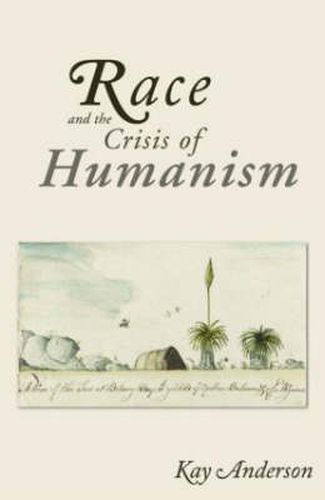Readings Newsletter
Become a Readings Member to make your shopping experience even easier.
Sign in or sign up for free!
You’re not far away from qualifying for FREE standard shipping within Australia
You’ve qualified for FREE standard shipping within Australia
The cart is loading…






The idea that humankind constituted a unity, albeit at different stages of ‘development’, was in the 19th century challenged with a new way of thinking. The ‘savagery’ of certain races was no longer regarded as a stage in their progress towards ‘civilisation’, but as their permanent state. What caused this shift?
In Kay Anderson’s provocative new account, she argues that British colonial encounters in Australia from the late 1700s with the apparently unimproved condition of the Australian Aborigine, viewed against an understanding of ‘humanity’ of the time (that is, as characterised by separation from nature), precipitated a crisis in existing ideas of what it meant to be human.
This lucid, intelligent and persuasive argument will be necessary reading for all scholars and upper-level students interested in the history and theories of ‘race’, critical human geography, anthropology, and Australian and environmental studies.
$9.00 standard shipping within Australia
FREE standard shipping within Australia for orders over $100.00
Express & International shipping calculated at checkout
The idea that humankind constituted a unity, albeit at different stages of ‘development’, was in the 19th century challenged with a new way of thinking. The ‘savagery’ of certain races was no longer regarded as a stage in their progress towards ‘civilisation’, but as their permanent state. What caused this shift?
In Kay Anderson’s provocative new account, she argues that British colonial encounters in Australia from the late 1700s with the apparently unimproved condition of the Australian Aborigine, viewed against an understanding of ‘humanity’ of the time (that is, as characterised by separation from nature), precipitated a crisis in existing ideas of what it meant to be human.
This lucid, intelligent and persuasive argument will be necessary reading for all scholars and upper-level students interested in the history and theories of ‘race’, critical human geography, anthropology, and Australian and environmental studies.